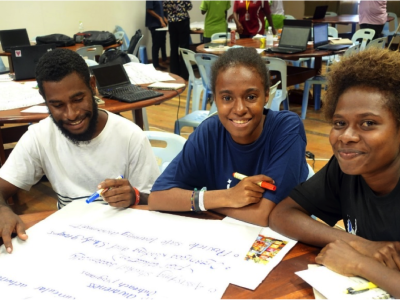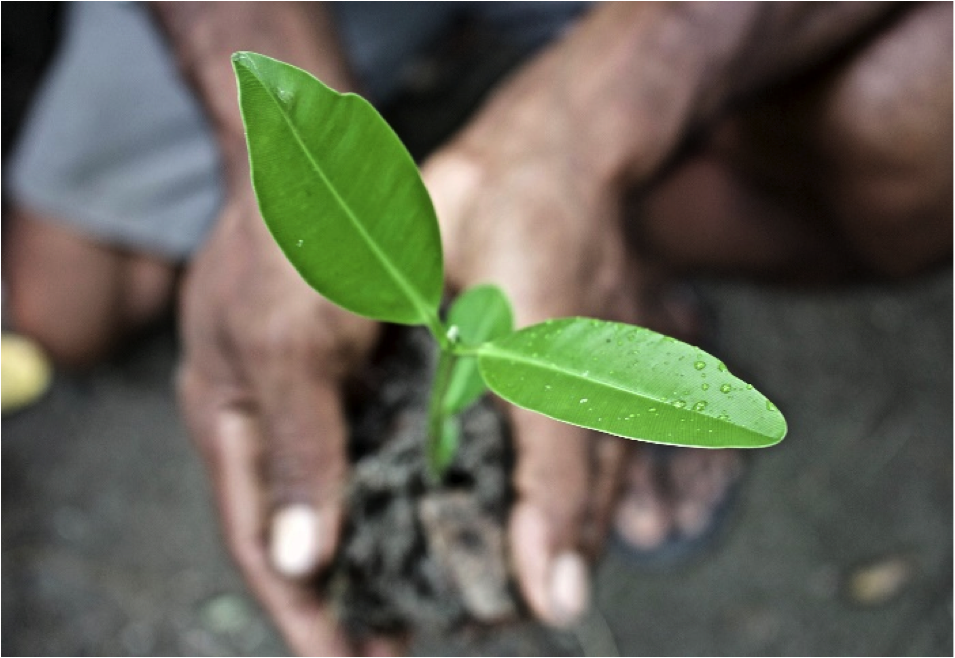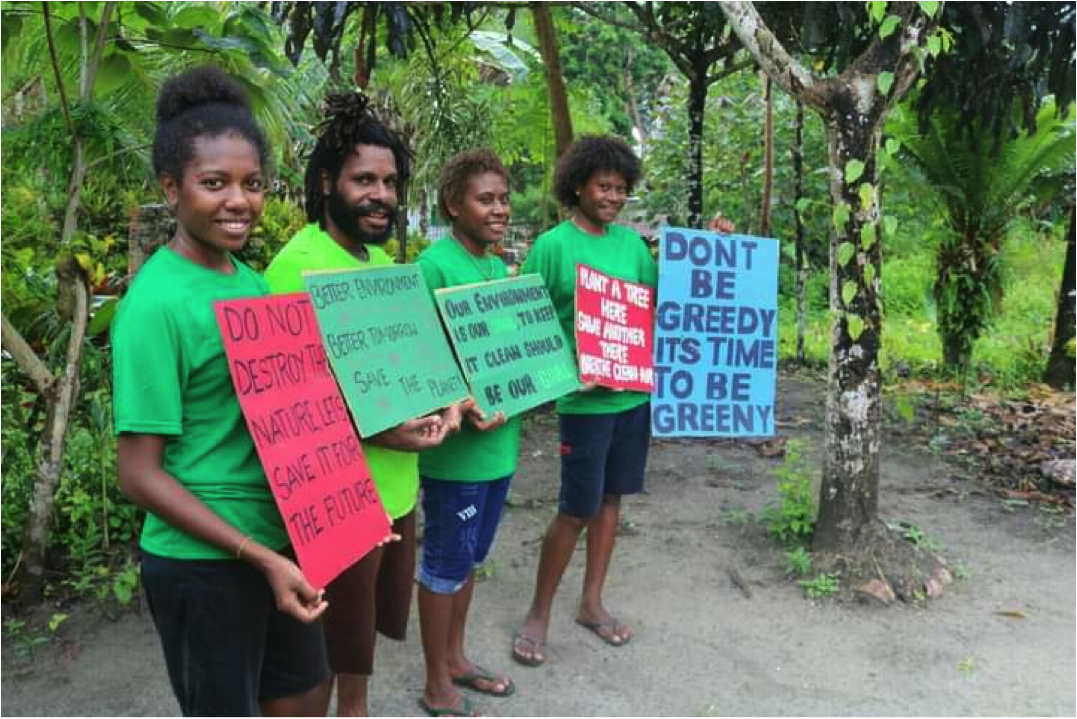“We can move forward:” How Papua New Guinean youth are leading the charge against climate change

“I believe that if we don’t start doing things now, my country will be destroyed,” Vinzealhar Nen says when asked what motivates her to speak out about climate change.
Despite the dire consequences her country faces from the growing climate crisis, Nen, a poet and youth climate activist from Papua New Guinea (PNG), remains inspired by other young people. Young people, she explains, who are willing to make an impact.
“The energy we have… excites me. When a group of people comes together and says, it doesn’t matter if they help us or not, we can move forward.”
 As an island state, PNG is especially vulnerable to climate change. In a presentation at a UNDP Stakeholder Meeting, Nen spoke specifically about the dangers of sea level rise. “Clean water becomes unclean for consumption,” she said. Additionally, rising temperatures and ocean acidity leads to “mass migration, not just for plants and animals, but also human beings.”
As an island state, PNG is especially vulnerable to climate change. In a presentation at a UNDP Stakeholder Meeting, Nen spoke specifically about the dangers of sea level rise. “Clean water becomes unclean for consumption,” she said. Additionally, rising temperatures and ocean acidity leads to “mass migration, not just for plants and animals, but also human beings.”
While her interest in environmental issues was first piqued when she was only nine years old, it was in 2015, when she became involved with a youth-led organization, called 350 Pacific, that Nen realized the effect of climate change on island countries, such as PNG.
In September 2019, as a result of her climate change advocacy and poetry, Nen attended the United Nation’s High-Level Meeting to address the Priorities of Small Island Developing States (SIDS).
“Before, I saw myself as a team player, not a team leader,” she said of her experience. “It was an eye opener and encouraged me to start the tree planting campaign.”
The tree planting campaign was, by any measure, a success. Taking place in 12 provinces, the campaign took on a life of its own, driven by an estimated 1,000 young people at the local level. In Simbu Province, where the most trees were planted, young people living in the city worked with their family networks in the villages, prompting a community reforestation effort. A young teacher in Bougainville Province organized her students to plant trees. In West New Britain, where annual tree planting efforts take place, a young girl worked with the organizers and arranged for an additional 500 trees to be planted.
“I am a youth of a small island,
At night I look up to the nights skies and see stars twinkling,
Stars which represent an era of dreamers and the doers,
Dreams of those like me,
Visions of a better tomorrow all brightening up the night sky,
Waiting to dazzle the land from which I come from.”
- Excerpt from “I am a youth of a Small Island” Vinzealhar Nen
The experience of most Papua New Guineas remains a driving force in her advocacy efforts. “We see what is happening,” she says. Speaking of the slow response to climate change by the country’s elites, she explains, “They don’t have to live inside those village houses where a wave crashes through it… they cannot really feel or see it.”
 While Nen discusses the mismanagement of natural resources and calls for more education about sustainable livelihood practices, she also points to the lack of choice many Papua New Guineans have. In regions without access to electricity, for example, families rely on wood or charcoal to cook and warm their homes. It is also difficult for young people to fully engage in climate work and address environmental challenges when they struggle for education, jobs, and healthcare, Nen explains.
While Nen discusses the mismanagement of natural resources and calls for more education about sustainable livelihood practices, she also points to the lack of choice many Papua New Guineans have. In regions without access to electricity, for example, families rely on wood or charcoal to cook and warm their homes. It is also difficult for young people to fully engage in climate work and address environmental challenges when they struggle for education, jobs, and healthcare, Nen explains.
For Nen, support for youth-led initiatives, especially information access and a youth platform, is vital for combatting climate change in PNG. “We need more opportunities like those that the UN has given us to have our voices heard.”
Cooperation between the generations is also necessary.
“The older generation comes with knowledge, wisdom and direction, while young people bring our energy. The energy that young people have to create change… they are going to be the change that we want to see.”

